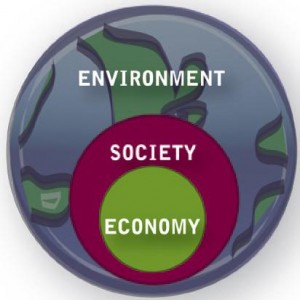Attitudes are evaluations of people, objects, and ideas, while behavior refers to observable activity.
Research has found that people generally harbour positive attitudes towards the environment; for instance, they tend to attain high scores on the widely-used New Ecological Paradigm Scale which measures environmental attitudes.
 Source: buildinginformationmanagement.wordpress.com
Source: buildinginformationmanagement.wordpress.com
However, it has also been found that environmental attitudes do not always correlate with behaviour.
In a pilot program conducted in Denver, Colorado in 1997, the goal was to alter households’ attitudes such that they inclined towards energy-saving appliances. The main message that the cost of any appliance includes not just the price of purchase, but also the energy costs used to run it. When the project ended, people were more aware of potential cost savings, believed in their ability to contribute to energy conservation, and were more receptive towards paying extra for energy-saving appliances. However, actual instances of purchasing these appliances were far and few.
Why?
A major reason is the gap between attitudes and behavior; there are intervening factors that determine whether or not pro-environmental behavior will actually be carried out. What are some of the problems that hinder environmental attitudes from being acted upon? Read on to find out.
